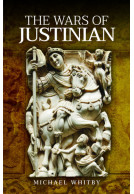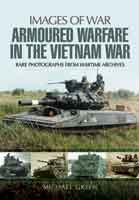Betrayed Ally (ePub)
China in the Great War
Imprint: Pen & Sword Military
File Size: 11.1 MB (.epub)
Pages: 194
Illustrations: 32 black and white illustrations
ISBN: 9781473875036
Published: 15th August 2016
National Publicity
As featured in The Times - Six of the best First World War reads
'An important new book' – as reviewed by Lord Lexden
Forces War Records Book Of The Month (October 2016)
As featured in The Telegraph, Monday 20 March 2017
| Other formats available | Price |
|---|---|
| Betrayed Ally Paperback Add to Basket | £14.99 |
| Betrayed Ally Hardback Add to Basket | £19.99 |
The Great War helped China emerge from humiliation and obscurity and take its first tentative steps as a full member of the global community.
In 1912 the Qing Dynasty had ended. President Yuan Shikai, who seized power in 1914, offered the British 50,000 troops to recover the German colony in Shandong but this was refused. In 1916 China sent a vast army of labourers to Europe. In 1917 she declared war on Germany despite this effectively making the real enemy Japan an ally.
The betrayal came when Japan was awarded the former German colony. This inspired the rise of Chinese nationalism and communism, enflamed by Russia. The scene was set for Japan’s incursions into China and thirty years of bloodshed.
One hundred years on, the time is right for this accessible and authoritative account of China’s role in The Great War and assessment of its national and international significance.
....…this book is required reading for anyone interested in the First World War.
Lucy London - War Poets
First published in 2016 this is a welcome and timely reprint given the recent and long overdue attention being given to the remarkable contribution made by almost 140,000 Chinese labourers on the Western Front. It is thought that around 10,000 lost their lives in France and Belgium, none were repatriated and the majority lie in Flanders fields. A further 200,000 served in Russia and for the most part their fate remains a mystery. It was only in 1917 when China joined the Entente Allies that they began sending labour to Europe yet despite their vast contribution to victory China was largely marginalised at the Versailles Peace Conference in 1919 leaving them feeling belittled and betrayed. As a consequence they refused to sign the Peace Treaty and their treatment by the Allies became a turning point in Chinese history and laid the foundation for their determination to become a super power and not dependent on allies of any sort. This book does exactly as stated in the title; it charts the contribution of the Chinese people in the Great War against the prevailing social, political, economic and military situation with particular reference to the (bad) behaviour of the Japanese and under-handedness of the Allies. Contrary to the impression given by the dust wrapper, which depicts Chinese labourers beneath the badge of the Chinese Labour Corps (CLC), this is not a history of the CLC with only one, albeit concise, chapter devoted to the way in which they were recruited, contracted, clothed, paid, shipped to France, the massive communication difficulties they had, the dangerous and unpleasant tasks they were given and their generally very poor treatment by their British, French and Russians “employers”. Most helpfully the book is laced with a series of single page summaries of the key facts. Betrayed Ally is highly recommended for anyone wishing to better understand the vital contribution made to the outcome of the Great War on the backs of Chinese labourers and the long term impact of the post-War treatment of China by the Allies which shaped the development of the modern super power.
Clive Elderton, Military Historical Society
This is an excellent book about China and brings into sharp focus the political intriguing of the allies as the war was being fought. The author’s research is very rewarding for the reader to further expand their knowledge and understanding about this little known aspect of the First World War.
Martin Willoughby, Chairman of the Wessex Branch of the Western Front Association
Betrayed Ally (China in the Great War) by Frances Wood and Christopher Arnander, superbly written and informative, shows how China played a critical, though unheralded, role in securing victory for the Allies. But instead of gratitude and appreciation, its efforts were scorned, derided and ignored.
The Telegraph 20/3/17
As featured on Shanghai Daily,上海日报.
Shanghai Daily,上海日报
'Betrayed Ally (China in the Great War) by Frances Wood and Christopher Arnander, superbly written and informative, shows how China played a critical, though unheralded, role in securing victory for the Allies. But instead of gratitudes and appreciation, its efforts were scorned, derided and ignored.'
China Daily
Read the full review here.
As featured in
Barclays magazine
What a marvelous book - fresh and lively and brimming with original
Amazon Customer 5* Review - Desert Rat
research! Who would have thought there was so much fresh light to be shed on
the much-covered subject of the First World War, with such implications for
the world today? This is what history is all about!
This is an extraordinary book that reveals to the ignorant, like myself, yet other ways in which we have treated the Chinese badly over time. As well as forcing them to allow us to trade in opium in their country, it seems that we are guilty of ingratitude for their support in the First World War, leaving them out of the Treaty of Versailles among other things such as cutting off their traditional symbolic pigtails. I think it is a fact not known to many people that China sent a huge body of labourers to build and repair roads and trenches, crucial to the war effort, in France.
Amazon 5* review - R Deakin
This is a serious book, well written and interesting, made immensely pleasurable and easier to read by the accompaniment of many wonderful illustrations and cartoons. For instance cartoon examples of Chinese incompatibility over numbers, Chinglish examples and in response to offensive prohibitions such as "No dogs or Japanese", a Chinese comeback sign saying "Dogs, Japan man and British man NOT ALLOWED to enter."
This book is essential reading for anyone interested in the First World War and/or China, including our relations even today with that important country. Also for anyone interested in reading surprising truths about our colonial relations and foreign policy.
The text is supplemented by a couple of informative appendices. The first consists of a useful chronology of recent Chinese history ranging from the start of the Manchu dynasty in 1644 through to the foundation of the People’s Republic of China in 1949. The second offers a brief biography of all of the key personalities. The narrative is helpfully referenced throughout and the authors have used a wide range of primary and secondary sources – drawing from Chinese as well as European archives, journals and books. Frances Wood studied in Beijing, has written extensively about China and was curator of the Chinese collections at the British Library. Christopher Arnander has a background in public finance and has blended this with an interest in military history. With these impressive credentials it is not surprising that these two experienced writers have produced such an entertaining, thoroughly researched and provocative introductory study of China in the Great War.
The Western Front Association, Phil Curme
Read the full review here.
As featured on Asian Review of Books.
Asian Review of Books
Well-researched, well-illustrated, and very accessible, this is an important story that deserves to be known, and indeed, would make the basis for a very good documentary.
Steve Earles, Destructive Music
Read the full review here.
This neglected but hugely significant chapter in the history of the First World War is concisely told by Frances Wood and Christopher Arnander in a profusely illustrated account that - given contemporary China's emergence as a global superpower - feels highly topical. It will rivet those who are keen to understand Asia's sleeping dragon, now rapidly awakening.
The Telegraph 15/11/16
5 stars.
As featured in
Military History Monthly, December 2016
A first-rate book which looks at China's part in the Great War, which is largely overlooked by many. In 1914 China offered Britain 50,000 troops to recover the German colony in Shandong and in 1916 she sent a vast army of labourers to Europe where the Chinese Labour Corps contributed greatly to the building and repair of infrastructure like railways, roads, canals and trenches. The author have produced a fascinating work well worthy of any reader's time.
The Great War Magazine, November 2016 - reviewed by Mark Marsay
First-rate work. 10/10
I first found out about the Chinese Labour Corps when researching Canadian Artist Mary Riter Hamilton for the Inspirational Women section of my commemorative WW1 exhibition project. Mary was commissioned by the Canadian Amputees Association to travel to France in May 1919 to paint the aftermath. She lived for three years in a tin hut among the Chinese workers who cleared away the mess left at the end of the First World War. I was therefore very interested in finding out more about China during the conflict and pleased to find a book on the subject.
Lucy London - War Poets
As the writers say in the Introduction: “Few in the English-speaking world have any idea of China’s participation in the First World War”. This books puts that right.
Initially neutral, in October 1915, China presented a military aircraft to the British government;
300,000 Chinese workers served during WW1;
140,000 Chinese workers served in France;
200,000 Chinese workers served in Russia; they were caught up in the Revolution and ‘disappeared’;
One of the first battles of the First World War was on Chinese soil;
10,000 or more Chinese workers died or were killed – some at sea during the perilous journey to France due to the intense German submarine campaign against Allied shipping;
China officially joined the Entente Allies in 1917 and declared war on Germany;
China attended the Versailles Peace Conference in 1919 but felt belittled and betrayed and did not sign the Peace Treaty.
Reading this book, which, the writers explain, is aimed at ‘the general reader’ (that is most definitely me) helps us to understand the current situation in the world. The writers explain in detail the recent history of China which became a Republic in 1912. They tell us about the political intrigues, secret dealings and complex diplomatic negotiations that went on behind the scenes during the war years in the Far East. What happened during the Versailles Peace Treaty is also explained and this undoubtedly led to the conflicts of the 1930s and beyond.
I particularly liked the notes on transliteration which explain the complexities of the Chinese language, for instance, the word ‘coolie’ means hard labour. I knew there was a Commonwealth War Graves Commission Cemetery for Chinese Labour Corps members who died or were killed in France but I did not know about the Chinese Hospital at Noyelles-sur-Mer in France which was run by Douglas Gray, the former Medical Officer at the British Legation in China.
And interestingly, we learn that young British diplomats who worked for the British Civil Service and who wanted to volunteer for military service were discouraged from doing so because it was thought a waste of their long years of training in diplomacy, though young men in the Consular Service were eventually allowed to join up (p. 58).
Illustrated throughout with maps, cartoons, photographs, charts and diagrams and including appendices detailing recent Chinese history and prominent personalities of WW1 and with copious explanatory notes and a comprehensive index, this book is required reading for anyone interested in the First World War.
On 7 November 1914 a joint Anglo-Japanese force captured the Chinese city of Qingdao, known as “one of the most fashionable watering-places in the Orient”, which had been under German control since 1897, along with some 550 square kilometres of the province of Shandong. In just a few years German enterprise had transformed the region into a thriving industrial centre whose steadily rising output of coal fuelled the Kaiser’s expanding Far Eastern fleet. Shandong had long been coveted by the expansionist, modernising Japanese. Some 2,000 British troops, stationed elsewhere in China, arrived to assist in delivering a mortal blow to German interests.
Lord Lexden, 'The House' Magazine
The two allies, fighting together for the first and last time on Chinese soil (they were to mount their only other combined war-time operation at Vladivostok in 1918), were not exactly enthusiastic about each other. The British were appalled by the savagery of their comrades in arms who looted and destroyed the villages of the unfortunate Chinese. Their sanitation was another cause of complaint: “they left the ground in a filthy condition when they moved”. The Japanese were no less impolite, dismissing British tommies as “not good soldiers” and their army as the embodiment of “cowardice itself”. (Such attitudes would help bring about the infamous treatment of British prisoners in the Second World War.)
Even during the earlier conflict Britain and Japan had objectives that were fundamentally incompatible. Japan sought to bring as much of China as possible under its control ; Britain wished to retain the rights and concessions it already enjoyed. Able and confident Chinese leaders who were beginning to come to the fore in this weak and divided country sensed an opportunity. They presented themselves to the British as infinitely more reliable allies than the Japanese, who failed to send supplies and munitions to the Western Front in fulfilment of their treaty obligations.
In 1915 the Chinese offered to dispatch 300,000 men to France, along with 100,000 rifles. Some 140,000 non-combatants eventually arrived. They dug trenches much faster than British troops and carried the heaviest objects with the greatest of ease, earning the praise of Lloyd George himself. “They are immensely powerful fellows”, he wrote, “ and it was no uncommon sight to see one of the Chinese pick up a balk of timber or a bundle of corrugated iron sheets weighing 3 or 4 hundredweight and walk off with it as calmly as if it weighed only as many stone”. Around 10,000 died. They are buried in 40 cemeteries, tended devotedly by the Commonwealth War Graves Commission. China had earned the gratitude of its allies, but it received none. Its interests were totally disregarded at the long peace conference in 1918-19. The Chinese delegates refused to sign the Versailles peace treaty.
The two authors are experts with a common touch. Their book puts the fruits of scholarly research into a forgotten episode of the First World War at the disposal of the general reader in strong, vivid prose, accompanied by a mass of pictures. They share the outrage felt by the Chinese at the end of the war. Ruthless Japan profited at China’s expense, emboldening it to launch a savage war of conquest in the 1930s.
Would Britain have an easier time of it today as it solicits Chinese investment if it had not betrayed its First World War ally? Wood and Arnander stress the extent to which memories of past Western wrongs “still inform the Chinese view of her place in the world and influence current relationships and attitudes”.
As featured on.
fascinatingfactsofww1
Frances Wood and Christopher Arnander tell the story of China in the Great War with clarity and objectivity.
The Times 16/7/16
About Christopher Arnander
Christopher Arnander pursued, after Oxford University, a banking career before becoming a Middle Eastern consultant. He has written a number of books including two bi-lingual proverb books Pavilions in the Air and You Can’t Get Blood Out of a Turnip.
About Frances Wood
Frances Wood studied Chinese at the universities of Cambridge, Peking
and London and was Curator of the Chinese collections at the British
Library until 2013. Her published works include The Blue Guide to China, Did Marco Polo Go to China?, The Silk Road: two thousand years in the heart of Asia, The Forbidden City, No Dogs and Not Many Chinese and Picnics Prohibited.



















